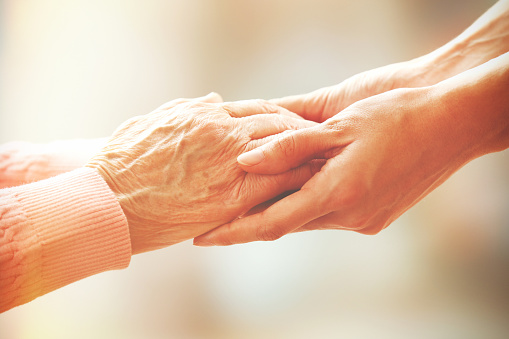
Lisa Krieger’s 88-year-old father, who was suffering from dementia, was very frail when he developed an infection.
“I rushed him to the ER because that’s what you do when you have a sick loved one,” she said.
But Krieger, who writes about health for the San Jose Mercury News, soon learned how difficult end-of-life decisions can be. She was an only child, and deciding how far to go to try to extend her father’s life fell to her.
“It is like being on a freeway of technology where you can’t find the exit ramps,” she said. “I learned the system is built to save people. It is easy to get care and very hard to say no.
“What really resonates is that it is important to have goals and make sure technology use is in line with those goals,” she said.
Such questions about how to approach the end of life, especially for family members or friends making decisions for loved ones with a diminished capacity to make their own choices, can prove full of dilemmas.
_____________________________________________________________
This article is one in an occasional series on aging with dignity, independent living and public policy that affects both. For a complete archive of the articles, click here.
______________________________________________________________
The Hospice Foundation of America tries to address some of the issues each year with its “Living With Grief” video presentation, shown at conferences throughout the United States, including a recent conference in Monterey Bay this spring.
The panel discussion that followed the video brought together medical professionals, lawyers and people who have recently faced end-of-life issues.
Even advanced directives – which can include such information as what treatment or procedures a patient wants such as resuscitation, ventilators or feeding tubes – can have limitations since they cannot foresee all possible situations, said John Hausdorff, the medical director of Community Hospital of the Monterey Peninsula’s hospice program.
“What we really need are discussions,” Hausdorff said. “We need to get it to be okay to talk about these things with family at the dinner table and with physicians. It should be more around ‘What do I value?’ and what do you want to be able to do. When things get very bad, maybe that’s the point you let go – when you can’t recognize your family or joke around.”
It’s important for physicians to take care in what kinds of treatment options are offered at the end of life, said Theodore Kaczmar, a neurosurgeon who is on the bioethics committee at Salinas Valley Memorial Hospital.
“We need to ethically distinguish between treatment that has a low chance of success or no chance,” he said. “Certain care options we don’t present to families because it would be futile. It is much harder to withdraw treatment than not to start it.”
Krieger, speaking from a family’s point of view, said that she would have preferred healthcare professionals refer to treatment as ineffective rather than futile because that implies there is no hope.
“Finally when the palliative care team came in (to care for her father) what really helped a whole lot was they said what they can do,” she said. “‘We can’t cure him but we can make him comfortable.’ The way they framed it wasn’t that they were taking care away but that they were providing a different type of care that would be better for him.”
Hausdorff described a patient he had seen once who was 90 years old, had cancer, bad lungs, diabetes, dementia and problems with her legs. The family brought her from a nursing home to the hospital and insisted on CPR even after doctors said she would not be able to survive CPR.
“In homecare we talk with families about end of life – that there is a difference between extending life and delaying death,” said John O’Brien, the chief executive officer of Central Coast Senior Services. “Quite often (family members) are delaying death with what they are talking about but they don’t realize it. They talk about delaying the inevitable but it is going to happen.”
“Medical schools didn’t talk a lot about hospice,” O’Brien said. “Medicine is a world of specialists and they can kick the can down the road to the next physician. The outcome for the family and patient side is lacking…we tend to avoid the conversation.”
Stephen Pearson, a lawyer on the panel, said more education about hospice would help to get people to select it earlier on.
“There needs to be more education about the advantages,” he said.
Hausdorff said as hospice and palliative care programs expand there is a push to teach it in medical schools and with residents.
Krieger acknowledged that it can be hard for families to discuss the topic.
“When someone gets a dementia diagnosis is a good time to talk,” she said. “One thing I keep hearing from people is ‘I thought there would be more time.’”
She said as societal norms change more of these important conversations may start.
“Kids don’t want to talk about it because they don’t want to feel like they are throwing granny off a cliff and parents don’t want to talk about it because it is depressing. But I hope there is a change to the norm so it becomes acceptable.”





